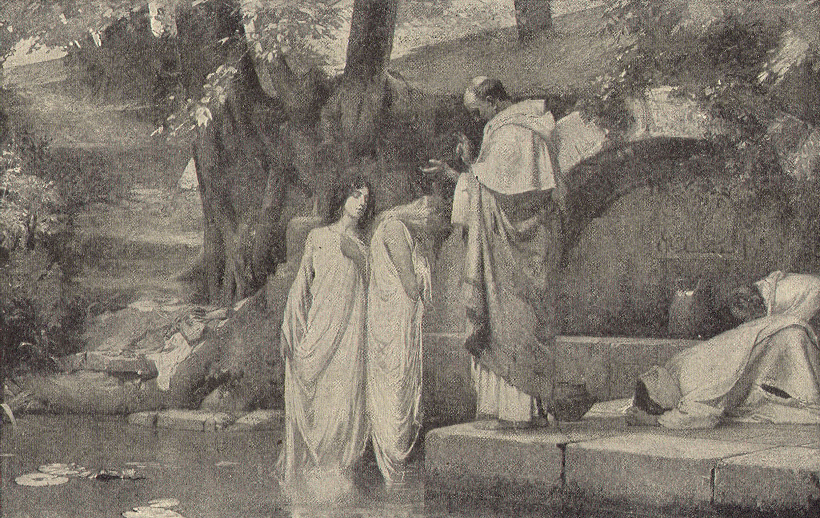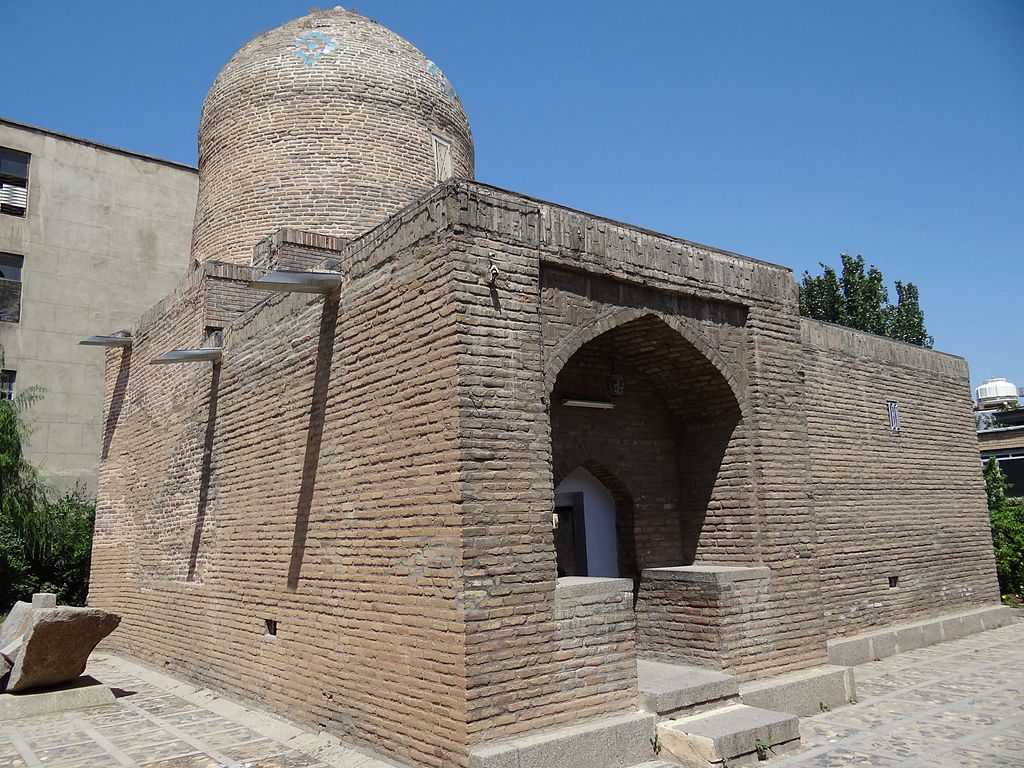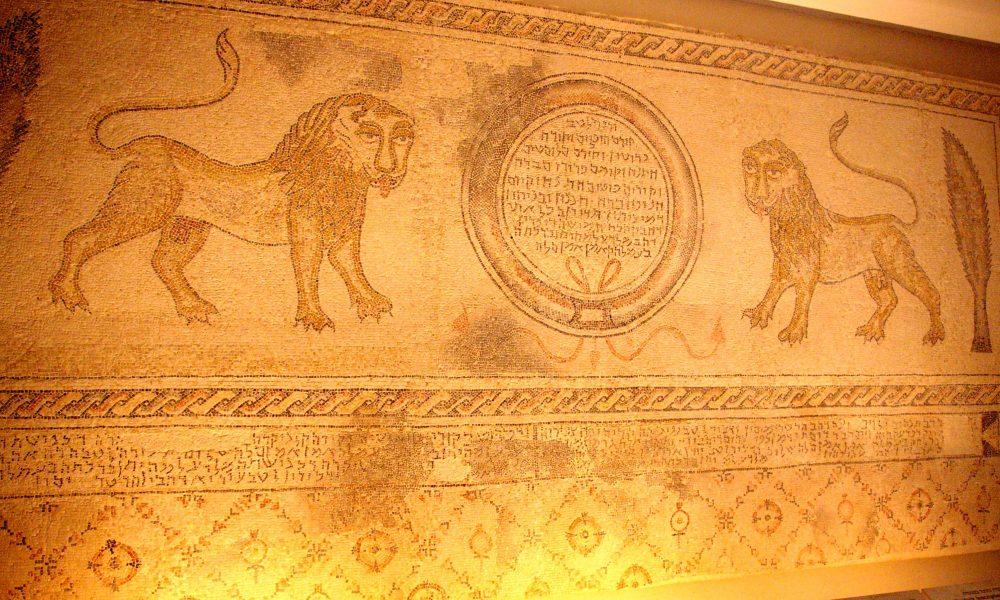
430 AD to 450 AD, Psalm 69: The Pariah Jews.
This site was first built in French (see www.147thgeneration.net). The English translation was mainly done using « google translation ». We have tried to correct the result of this translation to avoid interpretation errors. However, it is likely that there are unsatisfactory translations, do not hesitate to communicate them to us for correction.
(for that click on this paragraph)
Summary
This generation is from the years 430 AD to 450 AD.
According to our count, this generation is the 69th generation associated with Psalm 69. It is in this Psalm 69 that we therefore find an illustration of the facts of this generation.
Theodosius continues to reign over the Eastern Roman Empire. During this generation he toughened the legislation against the Jews, gradually turning them into outcasts.
In the Persian Empire, the situation of the Jews also deteriorates. Before this generation, they enjoyed a certain religious benevolence, especially under the reign of Yasdegerd I (399-420); married to a Jewess – Sussan.
Bahrâm succeeds him. Yasdegerd II succeeds Bahrâm. He goes after the Armenians first. Under the influence of the Zoroastrian clergy, he decides to convert Armenia to Mazdaism, which leads to a revolt. Despite the first setbacks, Yasdegerd crushes the revolt, capturing and deporting great Armenian families and the clergy.
The persecutions of Jews and Christians then start again.
Thus, in this generation, everywhere in the “known” world, the Jews find themselves in danger without being able to find a welcoming land.
Talk
The Huns
While a certain Patricius (Saint Patrick) landed in Ireland in 432 to become the founder of Celtic Christendom in Ireland, north of the Christian Empires of East and West, the Huns consolidated their hold.
The pressure of the Huns in the north is made more heavy under the reign of Attila (434-453) on the Roman empires:
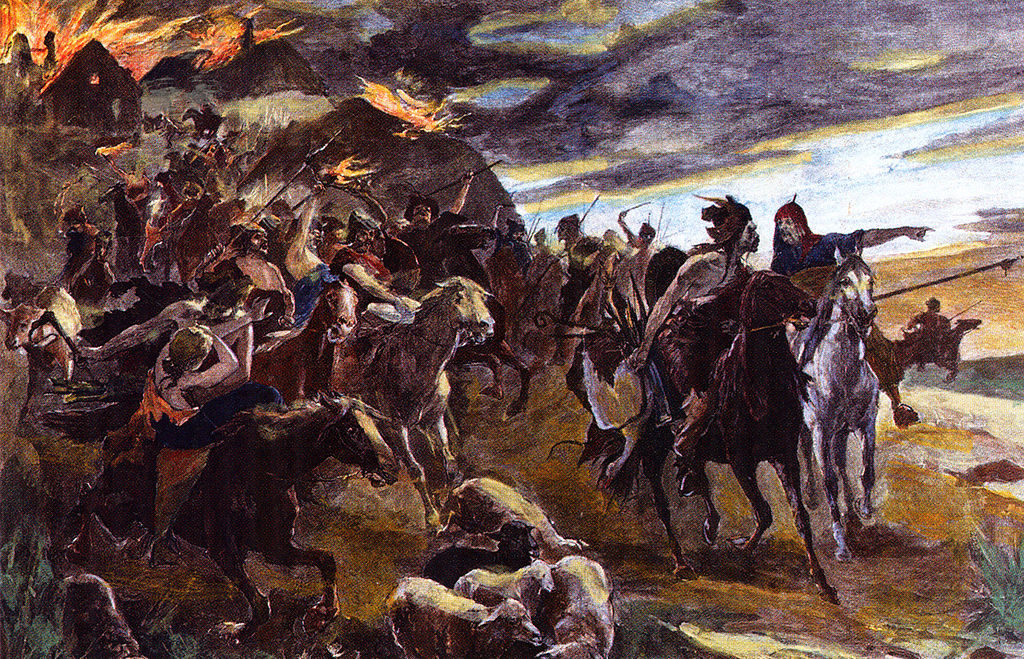
- Attila[5], « the Scourge of God », had ascended the throne of the Huns in 434. After more than half a century of contact with the Romans, his people were arguably a little less bestial. But he still lived and slept outside, disdaining all agriculture and even all cooked food, tenderizing raw meat by placing it between knights’ thighs and his horse’s sides. Attila was a perfect example of his fellow human beings: short, stocky, a flat nose, small eyes in a face too large for his body, and a sparse bushy beard. After seven years of rule, he had appropriated a vast barbarian empire stretching from the Balkans to the Caucasus and beyond. But thanks to the annual tribute paid to him by Theodosius, he did not cause the (Byzantine) empire any serious trouble before 447. His army was advancing simultaneously in two directions: south into Thessaly, and east toward Constantinople . It seemed that Theodosius’ wall (protecting Constantinople) had been built in time: the Huns turned around in search of more accessible looting. But they inflicted a crushing defeat on the Byzantine army at Gallipoli, and did not withdraw until after the emperor agreed to triple the annual tribute.
Anti-Jewish Laws in the Christian World
At the level of the Roman Empire of the West, after the death of Honorius in 423, it is Valentinian III who reigns from 425 to 455, he is 6 years old at the death of Honorius, On the Roman Empire of Orient, Theodosius II continues to reign (408-450) and compiles the « Theodosian Code » in 438, which only repeats the set of laws against paganism promulgated between 312 and 437.
The status of the Jews in the Christian world deteriorates under Theodosius, which hardens during this generation the legislation against the Jews:
- In[1] 439, Theodosius II promulgated the general exclusion of Jews from all honorary civil and military posts. This measure may not have represented as complete a break with past practice as it might seem superficially. Even in the days of Augustus, we recall, the Jews played only a minor role in the imperial administration. With the coming to power of the bureaucracy and the military, exclusion was much more general. The fact remains that, promulgated as an openly discriminatory constitutional principle, such disqualification underscored the new legal inferiority of Jews in relation to all situations involving power and prestige.
This legislation is accompanied by a reinforced activism of ecclesiastical representatives:
- Attacks[2] on synagogues by Christians grew to such an extent under Theodosius II that most of the emperor’s edicts touch on this problem. On August 6, 420, Theodosius notified that the synagogues and the dwellings of the Jews were not to be damaged or even set on fire without reason. Three successive decrees, in the year 423 alone, reinforce this ban. Replacement land must be offered for synagogues already converted into churches. But as it remained forbidden, at the same time, to build new synagogues or to enlarge existing ones, this deterioration of the situation following acts of ecclesiastical violence was confirmed, at least from a legal point of view. Another question is whether this had any concrete repercussions in Palestine. Archaeological excavations allow to establish, during the Byzantine period, which one built with enthusiasm, which seems to deny the negative image born from the legislation. In Theodosius’ Third Novel, dated January 31, 438, the legislation on synagogues is summed up neatly: the erection of new synagogues is prohibited; those which go beyond this decree will become property of the Church. Rickety synagogues can be consolidated, but beautification measures beyond simple shoring can be fined fifty pounds of gold (!).
Degradation in Persia
On the Persian side, at Yazdigird I (399-420), succeeds, for the period of this generation, Vahram V (421-438) then Yazdigird II (438-457).
For several generations the situation of the Jews of the Christian world was unenviable, but until then refuge was possible in Babylon in the Sassanid world. This escape disappears in turn.
Thus on the Persian side[3], religious benevolence had increased under Yasdegerd I (399-420); married to a Jewess – Sussan – the sovereign manifests with Jews and Christians a real support.
This royal couple merges with that of Esther and Xerxes, so much so that the tomb (of a much later architecture) situated today in Hamadhan, reputed to be that of Esther and Mordecai, is more probably that of the Sassanid queen.
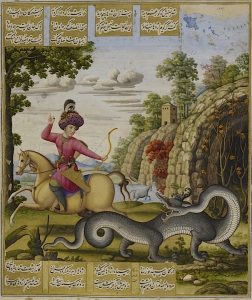
His successor Bahrâm V (421-438), named Bahrâm Gûr, will overcome the struggle against other princes with the support of external forces. As a result of persecutions against Christians, friction occurs with Byzantium. These ends when the Christians of Persia break with those of Byzantium thus reducing the risks of double allegiance dreaded by the Persians.
In addition to the threat of the Huns on the Caucasian border, the Persians must fight the Hephthalites, nicknamed the White Huns by Byzantium.
Yasdegerd II succeeds to Bahram and will quickly threaten the tranquility of the Jews of Persia, who until then, unlike those of the Roman empires of the East and the West, enjoyed a certain tranquility:
Jews, outcasts
Outside these two worlds: no salvation.
This situation where the Jews are endangered all over the world without being able to find a welcoming land is illustrated by the psalm of this generation:

(extract of the psalm 69 associated to this generation, verses 1 to 10 )
- For the conductor, on shoshannim, of David.
- Save me, O God, for water has come up to my soul.
- I have sunk in muddy depths and there is no place to stand; I have come into the deep water, and the current has swept me away.
- I have become weary from calling out; my throat has become parched; my eyes fail while I wait for my God.
- Those who hate me for nothing are more numerous than the hairs of my head; …
- The beginning of the Psalm illustrates the « dead end » situation of the Jews of this generation forced to undergo either the Byzantine anti-Jewish laws or the Sassanids.
- … (verse 5 continuing) mighty are those who would cut me off, who are my enemies because of lies; what I did not steal, I will then return.
- This opposition is by no means justified on the Christian or the Persian side.
- O God, You know my folly, and my acts of guilt are not concealed from You.
- Do not let those who hope for You be shamed through me, O Lord God of Hosts; let those who seek You not be disgraced through me, O God of Israel.
- For I have borne humiliation because of You; disgrace has covered my face.
- David knows that his people defend the just voice of God and that the reproach suffered is insignificant in the face of divine trust.
- I was strange to my brothers, and alien to the sons of my mother.
- For the envy of Your house has consumed me, and the humiliations of those who blaspheme You have fallen upon me.
- Christians, who at the beginning of their history were integrated into Judaism today, deny it. The brothers of yesterday turn away from the Jews, like Esau towards Israel.
The status of pariah for the Jews, officialized, gives more weight to the preaching of the fathers of the Church such as those of John Chrysostom (excerpt mentioned above):
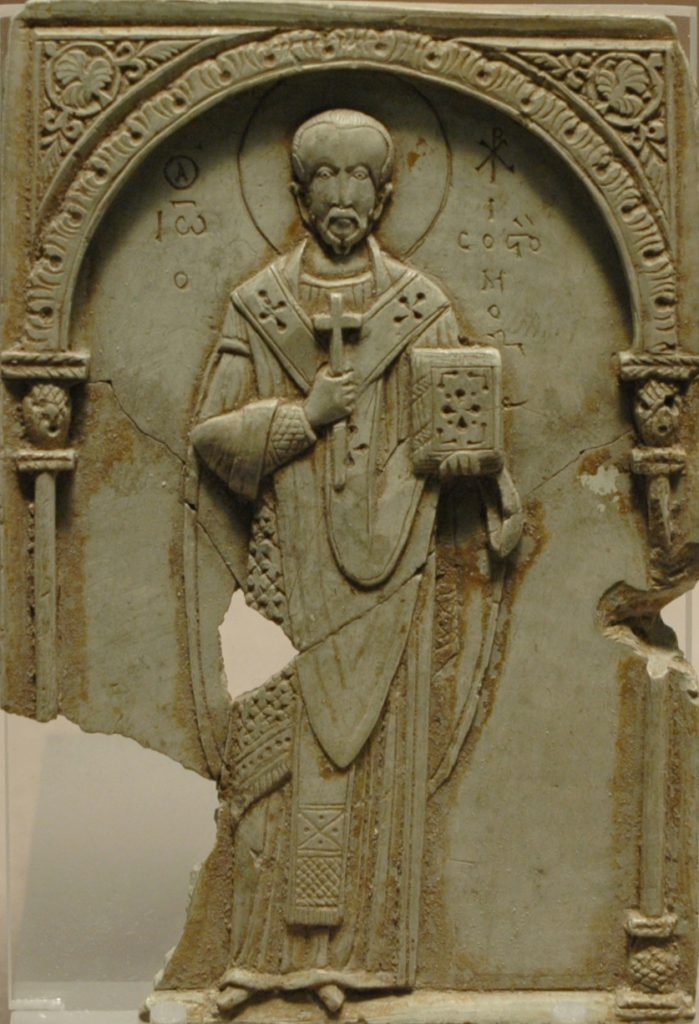
- The[6] indictment develops. Wolverines, drunkards, and carnals, the Jews are even to their fasts, which are an insult to God. The day of the Great Forgiveness is an occasion for indecent festivities: they dance barefoot on the squares; gathering together effeminate young choruses and a collection of women of bad life, they lead to the synagogue all the theater and the people of the stage: for between theater and the synagogue there is no medium.
This derision of Jewish worship associated with the hardening of anti-Jewish legislation is the subject of the following psalm:

- When I weep and fast, I must endure scorn;
- And I made sackcloth my raiment, and I became a byword to them.
- They talk about me, those who sit in the gate, and [they make] melodies [about me] for those who imbibe strong drink.
But again, David in the name of his people continues to trust God and expresses it in the following of the psalm, seeking justice against those who unjustly crush the people of Israel:
- But, as for me, may my prayer to You, O Lord, be in an acceptable time. O God, with Your abundant kindness, answer me with the truth of Your salvation.
- Save me from mud that I not sink, that I be saved from my enemies and from the depths of water.
- Let neither the current of water sweep me away, nor the deep swallow me, and let a well not close its mouth over me.
- Answer me, O Lord, for Your kindness is good; according to Your abundant mercies, turn to me.
- And do not hide Your face from Your servant, because I am distressed, hasten to answer me.
- Come close to my soul, redeem it; because of my enemies, redeem me.
- You know my humiliation, my shame, and my disgrace; all my oppressors are before You.
- Humiliation has broken my heart and I have become ill; I hoped for sympathy but there was none, and for comforters but I found none.
- They put gall into my food and for my thirst they gave me vinegar to drink.
- May their table before them become a trap, and [their hope] for peace become a snare.
- May their eyes become dark, so they cannot see; constantly cause their loins to slip.
- Pour out Your fury upon them, and may Your burning wrath overtake them.
- The arrival of Attila the « scourge of God » will indirectly grant the wishes of David.
- May their palace be desolate; in their tents let there be no dweller.
- Rome, the « tent » of Esau will soon fall definitively.
- For You-those whom You smote they pursued, and about the pain of those whom You wounded they tell.
- Add iniquity to their iniquity, and let them not come into Your charity.
- May they be erased from the book of life, and may they not be inscribed with the righteous.
- But I am poor and in pain; may Your salvation, O God, exalt me.
- I shall praise the name of God with song, and I shall magnify Him with a thanksgiving offering.
- And it will appeal to the Lord more than a young bull that is mature, with horns and hooves.
- Recall that the bull symbolizes the priest and the two horns east and west. Thus David recalls the primacy of the Jewish people in relation to the competition that these two entities want to bring to him through Christianity and Islam (for Islam, while awaiting its advent, the Persians represent them).
- When the humble see, they rejoice, yea, those who seek God, and your heart will be invigorated.
- For God hearkens to the needy, and He does not despise His prisoners.
- Heaven and earth will praise Him, the seas and everything that moves therein,
- When God saves Zion and builds the cities of Judah, and they dwell there and take possession of it.
- And the seed of His servants inherit it, and those who love His name dwell therein.
- David reminds us that despite the victorious feeling that will be born among the nations because of the unenviable fate of the Jews through the generations that will follow, it will eventually find its land, reaffirming its privileged place near God.

[1] SW Baron / History of Israel / II – The first centuries of the Christian era / History of Israel – Early medieval system. (French reference : SW Baron/Histoire d’Israël/II – Les premiers siècles de l’ère chrétienne/Histoire d’Israël – Début du système médiéval. (p 833/834) )
[2] Peter Schäfer / History of the Jews in Antiquity / Chapter: « From the uprising of Bar Kokheba » (french reference : Peter Schäfer/Histoire des Juifs dans l’antiquité/Chapitre : « Du soulèvement de Bar Kokheba » (p216) )
[3] According to Yves Porter / The Iranians: History of a people (French reference: « Les Iraniens : Histoire d’un peuple » (p91à93) ).
[5] John Julius Norwich / History of Byzantium / Chapter: « The first centuries / Attila le hun » (french reference : John Julius Norwich/Histoire de Byzance/Chapitre : « Les premiers siècles/Attila le hun» (p.64/65) )
[6] Marcel Simon: « Verus Israel », Chapter: « Christian Anti-Semitism » (French reference: « Verus Israël », Chapitre : « L’antisémitisme chrétien » (p257) ).

